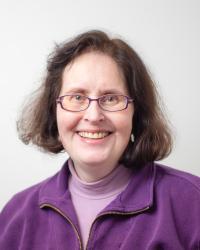
Contact Information
Biography
My interests focused initially on modernism and its adaptation into Arabic literature, which resulted in my first monograph (based loosely on a chapter from my dissertation) Placing the Poet: Badr Shāqir al-Sayyāb and Postcolonial Iraq. Sayyāb was one of the pioneers in this field. Then (following up on my early training at Princeton) I turned my attention to questions of rhetoric in Islamic culture. This resulted in the publication of several articles on how medieval rhetorical tropes were adapted by modern Arabic poets. Later, I also pursued an interest in philosophy, and particularly ethics, in medieval Islamic culture. All this led to my recent work with Professor Issa Boullata of McGill University in translating two volumes of the medieval encyclopedia Al-‘Iqd al-Farīd (The Unique Necklace) by the tenth-century Andalusian courtier and poet Ibn ‘Abd Rabbih. Our combined fascination with the art of rhetoric eventually led to our translation of the classic works on Quranic rhetoric (i‘jāz) by the medieval Arab authors al-Khaṭṭābī, al-Rummānī and ‘Abd al-Qāhir al-Jurjānī.
In the last decade or so I have returned to the question of literary periodization and how it is influenced by cultural factors. I decided that, to understand how modernism was shaped in the twentieth century in the Arab world, I needed to explore the work of earlier writers who thought of themselves as modern. This led to my monograph on the influential nineteenth-century statesman and poet Maḥmūd Sāmī al-Bārūdī, who is considered by many to be the first modern Arab poet. I am writing about his disciple, the Lebanese Egyptian poet and journalist Khalīl Muṭrān, who was deeply influenced by French Romanticism and pioneered the development of Arabic epic poetry.
My most abiding literary critical interests now include the structures of literary influence and the hybrid potential of adaptation as reflected in the work of poets as members of literary movements, alongside the exploration of the nature of European colonialism in the Arab world and how it has affected the position of the subaltern as intellectual. I have certainly found the inevitable oscillation between the medieval and modern (as a professor in a field who must teach a variety of courses) an enabling, rather than a restrictive, factor in my work.
A key component in developing my scholarly interests has been the work of the students whose projects I have supervised over the years. This collaboration has contributed in unexpected ways to my knowledge about so many subjects that are a dynamic part of my field.
Research
Selected Research
- “The Qur’an,” (Terri DeYoung co-authored with Ali Atef Mian, University of Florida) for The Wiley Blackwell Companion to World Literature, ed. Ken Seigneurie January 15, 2020 (forthcoming)
- Terri DeYoung, "Disguises of the Mind: Recent Palestinian Memoirs" REVIEW OF MIDDLE EAST STUDIES, (April 2017): 5-21.
- Terri DeYoung, "Ibn: Hazm: Friendship, Love and the Quest for Justice," Muhsin J. Musawi (ed.), ARABIC LITERATURE FOR THE CLASSROOM, Routledge, 2017: 237-253.
- Terri DeYoung (trans.) and Issa J. Boullata (trans.), THREE TREATISES ON THE I'JAZ OF THE QUR'AN: by Al-Khattabi, al-Rummani and 'Abd al-Qahir al-Jurjani, Garnet Publishing, 2015, 147 pages.
- Terri DeYoung, MAHMUD SAMI AL-BARUDI: RECONFIGURING SOCIETY AND THE SELF, Syracuse University Press, 2015, 423 pages.
- “Muhammad as Ethical Role Model,” Muhammad in History, Thought, and Culture: An Encyclopedia of the Prophet of God (2 volumes). Ed Coeli Fitzpatrick. & Adam Walker (Santa Barbara: ABC Clio Press, 2014): 169-173.
- Terri DeYoung, "Mahfouz's Novels and the Nation," Wail S. Hassan (ed.) and Susan Mu'addi Darraj (ed.), APPROACHES TO TEACHING THE WORKS OF NAGUIB MAHFOUZ, The Modern Language Association of America, 2012
- Terri DeYoung (trans.) and Issa J. Boullata (trans.), IBN 'ABD RABBIH: THE UNIQUE NECKLACE (AL-'IQD AL-FARID), Vol. III. Garnet Publishing, 2011, 317 pages.
- Terri DeYoung and Mary St. Germain (eds.), ESSAYS IN ARABIC LITERARY BIOGRAPHY, 925-1350, Harrassowitz Verlag, 2011, 371 pages
- Terri DeYoung (trans.) and Issa J. Boullata (trans.), IBN 'ABD RABBIH: THE UNIQUE NECKLACE, VOL. II, Garnet Publishing, 2009, 327 pages.
- Terri DeYoung, PLACING THE POET: BADR SHAKIR AL-SAYYAB AND POSTCOLONIAL IRAQ, State University of New York Press, 1998, 325 pages.
Courses Taught
Autumn 2025
Spring 2025
Winter 2025
Autumn 2024
Spring 2024
Winter 2024
Autumn 2023
Winter 2023
NE 530 A Nationalism and Colonialism in the Modern Arabic Novel--Winter 2018
NE 531 A Thousand and One Nights--Winter 2018
ARAB 600 Special Studies in Arabic--Autumn 2017 and Winter 2018
NE 600 Special Studies--Autumn 2017